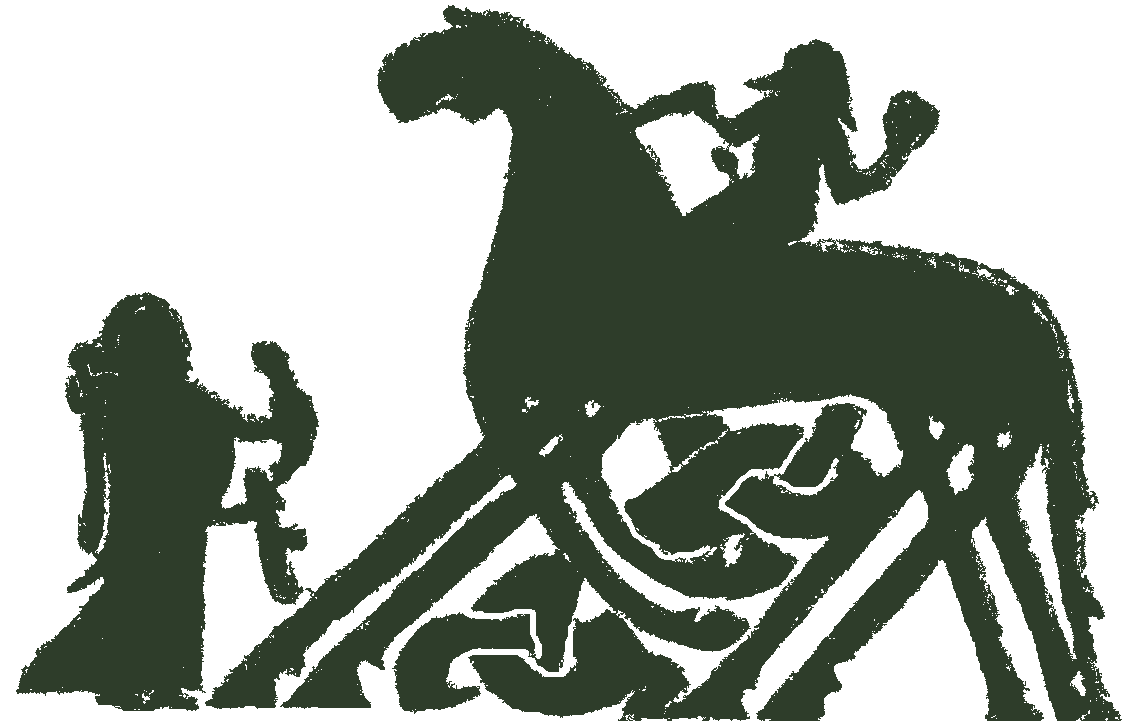in progress
Information on Freyr in Gylfaginning
text
Gylf ch. 24c
24c. Freyr
Freyr er hinn ágætasti af ásu... | Freyr is the most glorious of... |
[status: unverified copy]
[excerpt from] Gylf ch. 37b
37b.
Það var einn dag er Freyr haf... | It happened one day that Frey... |
[status: unverified copy]
Gylf ch. 43b
43b.
Þá mælti Gangleri: "Hvað er a... | Then spoke Gangleri: 'What is... |
[status: unverified copy]
Gylf ch. 49f
49f. Freyr
En Freyr ók í kerru með gelti... | Freyr drove in a chariot with... |
[status: unverified copy]
commentary
context
Gylfaginning, which is part of Snorra Edda, was composed in Iceland in the 13th century, and holds the stories of many of the Pre-Christian myths of northern Europe. It is believe to have been composed by the Icelander Snorri Sturlusson. Snorra Edda consists of three separate parts, Gylfaginning, Skaldskápamáland Háttatal, all functioning together as a greater work and guide for the aspiring medieval poet and storyteller.
commentary
Freyr is the most important fertility god and belongs to the Vanir family, the twin brother of Freyja and son of Njörðr. He is said to rule the rain and the sunshine and therefore decides on the outcome of the harvest and important for the peace and prosperity amongst men. He has a ship called Skíðblaðnir, described in Gylfaginning 44 and Skáldskaparmál 7 and 33 and the boar Gullinbursti which draws his chariot, according to Snorri in Gylfaginning 48. His home is in Alfheimr. At Ragnarök Freyr battles the fire giant Surtr and kills him with the antlers of a stag. Next to the numerous mentions on the mythological texts, Freyr is also described in Snorris Ynglinga Saga 10 as the ancient Swedish kind who settled in Uppsala with his wife Gerðr and son Fjöllnir where he became the ancestor of the powerful line of the Swedish kings of the Ynglingar dynasty.
For more, see:
Ellis Davidson, H. R, (1990), Gods and Myths of Northern Europe. London: Penguin Books. pp. 92-103.
Simek, Rudolf (2007), Transl: Angela Hall. Dictionary of Northern Mythology. Cambridge: D.S. Brewer. pp. 91-92.
Steinsland, Gro (2005), Norrøn Religion. Myter, Riter, Samfunn. Oslo: Pax Forlag. pp. 151-156.
(Contributed by Liv Marit Aurdal.)
tags
Main text: Gylfaginning
Attributes: Sacral kingship Wagon gods in wagons Ship Weapon Fertility Vanir invoking a god by calling name marriage between god and giantess high-seat pillar High-seat pillar Weather Travel Travel Island Sword Ride Nine Æsir Vanir Marriage
Named things:
Text sections: SnSt, Gylf ch. 24c SnSt Gylf 37bIII SnSt, Gylf ch. 43b SnSt, Gylf ch. 49f
